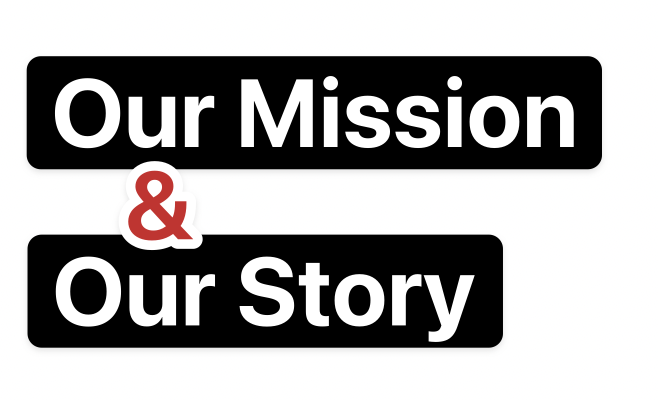
Our Mission
Staying true to the foundation of combining Jesus and justice, Red Letter Christians mobilizes individuals into a movement of believers who live out Jesus’ counter-cultural teachings.
Our Story
Red Letter Christians (RLC) began in 2007 as a community of Christian authors and speakers meeting for a time of fellowship to discuss the pressing issues of the day. Tony Campolo gathered together friends who felt strongly that Western Christianity had lost its focus on Jesus and were concerned at the growing misuse of the word “evangelical” to identify a voting bloc. Their desire was a church that looked like Jesus and a recapturing of the term evangelical to mean a people who bring good news to the world.
In December 2010, co-founders Tony Campolo and Shane Claiborne launched a blog as a home for the RLC network of speakers and authors to promote Red Letter living. Since then, Red Letter Christians has grown as a media and movement building organization reaching hundreds of thousands of Christians in emulating Jesus’ love, mercy, and countercultural way of life.
Christianity in America is in a funk.
Many people, young folks especially, are leaving the Church. But it is not Jesus they have rejected. It is a twisted version of American nationalism that is camouflaging itself as Christianity — but it looks very little like Jesus. For many people, it is their love for Jesus that has put them at odds with what evangelicalism has become known for.
We, Red Letter Christians, are not partisan. God is not a Democrat or a Republican. Our allegiance is not to the donkey or to the elephant, but to the Lamb. But much of what we are seeing today is not about the Right and Left — it is about right and wrong.
As faith-rooted organization dedicated to culture change and shifting the narrative around faith and politics, RLC focuses on civic engagement, direct action, and movement building through storytelling and social justice. We seek to amplify the voices of those on the margins to help counter toxic evangelicalism and to incite transformative social change.
We believe that the best corrective for what’s gone wrong in white evangelicalism is Jesus.
It was Frederick Douglass who once said, “Between the Christianity of this land, and the Christianity of Christ, I recognize the widest possible difference.”
When we take our eyes off Jesus, we end up talking a lot about things Jesus didn’t talk about and don’t talk about the things Jesus talked a whole lot about — like the 2,000 verses of the Bible that speak of justice, concern for the poor, and liberation for the oppressed. We want a Christianity that looks like Jesus again, that acts like Jesus, that loves like Jesus. And we know the best critique of what’s wrong is the practice of something better.
We call it Red Letter Christianity, because many Bibles have the words of Jesus highlighted in red letters. We believe in the black letters, too, and are convinced the whole Bible is God’s word. But Jesus is the lens through which we interpret the Bible, and the lens through which we interpret the world we live in.
So while this current age is a turbulent season for the Church, we believe that we are poised for revival, for another great awakening, for a new reformation in the Church.
It’s clear that some of the loudest voices of Christianity have not been the most beautiful voices. And some of the most beautiful voices haven’t had the amplification they deserve. The way we change the narrative is by changing the narrators.
There is a new and beautiful movement stirring around the world.
It is a movement of folks, young and old, who want a Christianity that looks like Jesus again.
It is a movement convinced that Jesus did not just come to prepare us to die, but to teach us how to live. For us, being a Christian has as much to do with life before death as life after death.
It is a movement that refuses to use our faith as a ticket into heaven and a license to ignore the hells around us.
It is a movement that is committed to building the world Jesus dreamed of — a world free of violence and poverty, a world where the last are first and the first are last, where the poor are blessed and the peacemakers are the children of God.
It is a movement that believes in resurrection and lives in light of the promise that life conquers death and love triumphs over hatred.
It is a movement of people who are reading the gospels with fresh eyes and saying, “What if Jesus really meant the stuff he said?”
